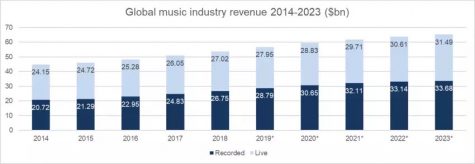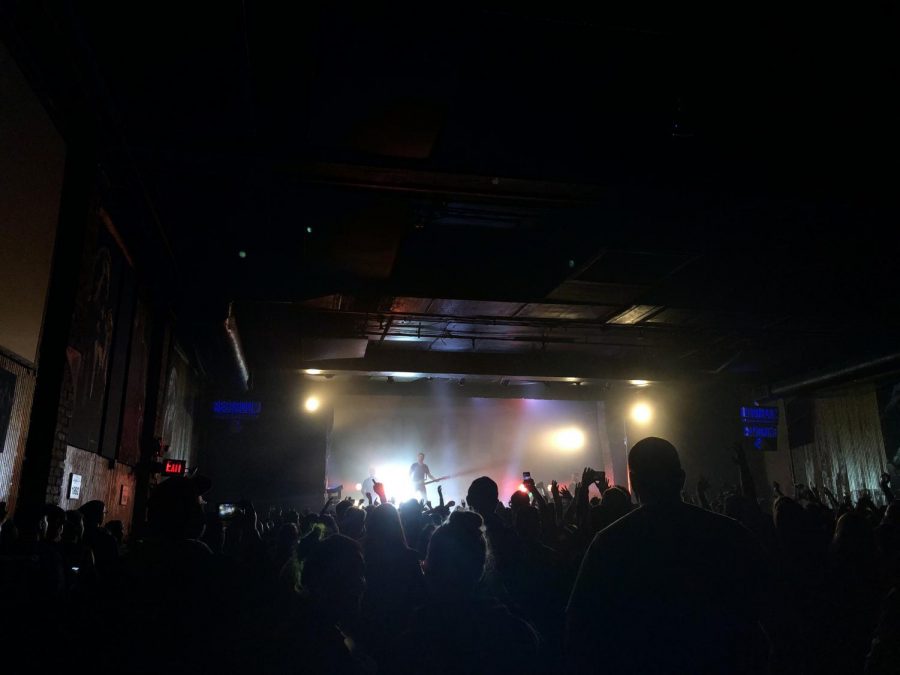COVID and the Music Industry
October 7, 2020
BY CRICKET COLLISTER
As someone who loves music, and live music the most, the pandemic has taken away my most valued event. The idea of being in a room, standing body to body, breathing hard, and jumping around, is impossible.
The last show I saw was at Bogarts in November, COVID-19 was unknown to me. Then came March 13th. The world shut down. The virus cancelled shows across the US, everything from the local Bunbury music festival, a 3-day festival at Sawyer point, to global tours, from bands like The Who and The Rolling Stones.
The global pandemic hit venues, musicians, and crew members the hardest. Concerts were unable to operate, leaving many musicians, crew members and overall employees without a steady income.
The global music industry is worth over 50 billion dollars, with live music making 50% of that revenue (We Forum, How COVID-19 is affecting the Music Industry). The modern industry is set up in a way where artists are paid to perform, but paid very little for their actual music on streaming services such as Spotify, Apple Music, YouTube Red, etc.

Streaming from these platforms have been suffering, since many people are spending less time in the car or at the gym. It is even worse with recorded music, more specifically with physical albums, which plummeted to 20.3%. Tours have been extremely damaged by the pandemic, for example The Rolling Stones and festivals, like Coachella and Bonnaroo, were cancelled. Many of these artists are doing online concerts, where they’re streamed and viewers buy tickets.
Concerts are a confusing future, with COVID-19 being a fluctuating and unpredictable situation. No one can truly know when this virus will end, and people’s mindsets have been affected: leaving them anxious of being close to people in a small indoor place. People can’t do much, but wear a mask and keep a positive attitude.











